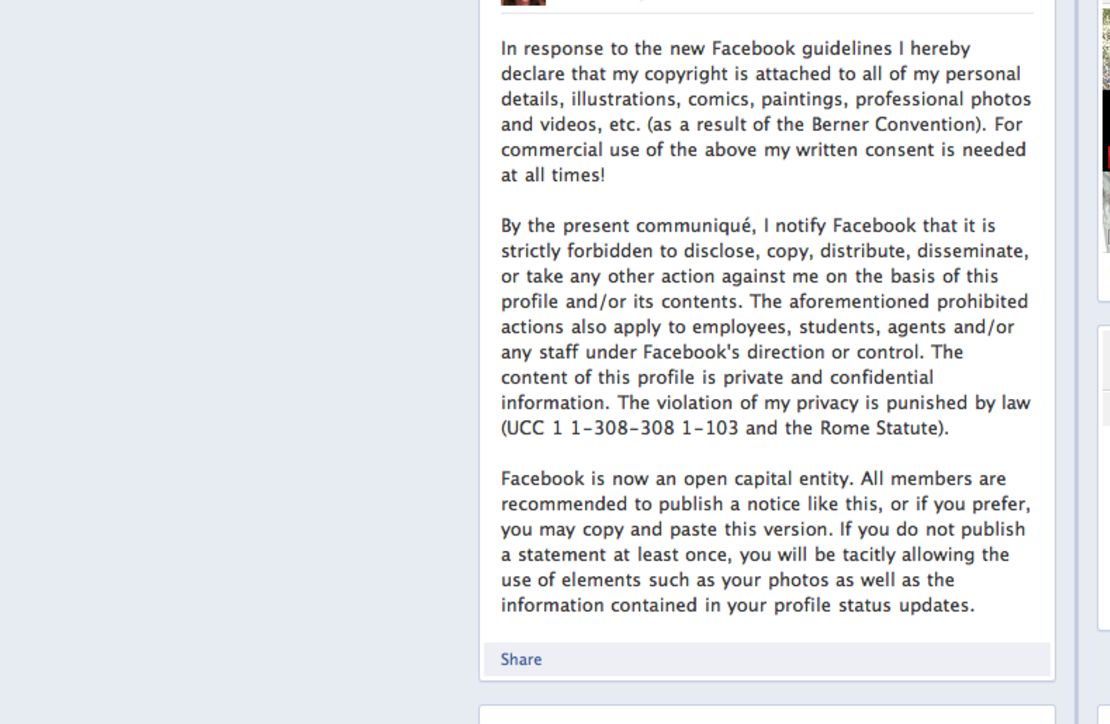Story highlights
The Facebook copyright hoax became the talk of the Internet, but what does it say about online privacy?
Tell us what you think. Share your thoughts in the comments below or post a video on CNN iReport
Something about the Facebook privacy hoax has gotten people to click “share.”
First, the faux copyright legalese spread like wildfire across the social networking site. Many users recently found their news feeds awash with postings suggesting that the users who displayed them would get extra copyright and privacy protection.
Then came the predictable backlash, as Internet users rushed in to debunk this latest theory. Even still, some people kept posting the message and it continued to spread on Tuesday morning.
Facebook has issued a statement saying the text posts are a hoax: “Anyone who uses Facebook owns and controls the content and information they post, as stated in our terms. They control how that content and information is shared. That is our policy, and it always has been.”

This meme is similar to a previous scheme years ago that suggested website owners place protective text on their pages, says the hoax-debunking site Snopes.com.
While many Facebook and Twitter posts snickered about the hubbub, concerns about online privacy linger.
“It may have been a hoax, but it did not hurt!” wrote one Facebook user.
There are questions, too. In a world of social media dominated by complex terms of use and sometimes-fuzzy privacy arrangements, could some Facebook users have taken solace in the possibility of having some bit of extra control over their data, even if it was a hoax?
Or, is this an issue of social media literacy? Perhaps more needs to be done to educate people about telling a hoax from something that is real.
We’d like to know what you think about the hoax. What does this say about our online world? Do you feel that your information is safe? What can be done to improve online privacy?
Share your views in the comments area below or post video commentary on CNN iReport.









